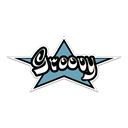Top jRuby Alternatives: Exploring Your Options for JVM-based Ruby
JRuby is a 100% Java implementation of the Ruby programming language running on the Java Virtual Machine (JVM). It offers the unique benefit of combining Ruby's expressiveness with the vast Java ecosystem and performance. However, for various reasons such as specific project requirements, community preferences, or performance considerations, developers often seek viable jRuby alternative options. This article will guide you through some of the best programming languages and platforms that can serve as excellent substitutes for your JVM-based Ruby projects.
Top jRuby Alternatives
Whether you're looking for a language with similar syntax, a more performant alternative, or a different approach to JVM development, there's a strong contender for your next project. Let's dive into some of the most prominent alternatives to jRuby.

JavaScript
JavaScript, often shortened to JS, is a lightweight, interpreted, object-oriented language primarily known as the scripting language for Web. While fundamentally different from Ruby in its approach, its versatility across Web, desktop, and mobile platforms makes it a strong contender, especially for projects requiring front-end integration. It's free and open-source, supported across Mac, Windows, Linux, Web, Android, and more, offering features like asynchronous programming, dynamic typing, and extensive web development capabilities.

Java
Java is the foundational language for the JVM, making it a natural jRuby alternative. As a general-purpose, concurrent, class-based, object-oriented language, Java is specifically designed for cross-platform compatibility. It's widely used in enterprise applications and Android development, offering robust features like garbage collection and excellent performance. Java is free and open-source, running on Mac, Windows, Linux, Web, Android, and many other platforms.

Ruby
If the core appeal of jRuby was its Ruby syntax, then native Ruby is a direct and excellent jRuby alternative. Ruby is a dynamic, reflective, general-purpose object-oriented programming language known for its elegance and developer productivity. It's free and open-source, available on Mac, Windows, Linux, BSD, and Haiku, offering features like blocks, dynamic typing, and a robust package manager, though it operates without the JVM's specific advantages.

Lua
Lua is a powerful, fast, lightweight, and embeddable scripting language. While not directly JVM-based, its embeddability makes it an interesting jRuby alternative for applications where a small, efficient scripting layer is desired. It's free and open-source, supporting a wide array of platforms including Mac, Windows, Linux, Android, and iPhone, emphasizing its utility for configuration and scripting.

Scala
Scala is a modern multi-paradigm programming language based on the Java Virtual Machine (JVM). It's designed to express common programming patterns concisely and elegantly, offering a blend of object-oriented and functional programming. As a JVM language, Scala is a powerful jRuby alternative for those seeking high performance and type safety within the JVM ecosystem. It's free and open-source, available on Mac, Windows, Linux, and BSD.

Kotlin
Kotlin is a cross-platform, statically typed, general-purpose programming language with type inference. Also running on the JVM, Kotlin is a very popular and modern jRuby alternative, particularly for Android development and server-side applications. It's free and open-source, supporting Mac, Windows, Linux, and Web, known for its concise syntax, interoperability with Java, and features like a robust compiler and support for web development.

Groovy
Groovy is an agile and dynamic language for the Java Virtual Machine (JVM). Its syntax is very close to Java, yet it adds Ruby-like features for scripting and rapid development, making it a compelling jRuby alternative for those who appreciate dynamic capabilities on the JVM. It's free and open-source, available on Mac, Windows, and Linux, and offers features like a compiler, interpreter, object-oriented capabilities, and powerful scripting.

Crystal (programming language)
Crystal is a programming language with Ruby-like syntax that compiles to efficient native code. While not JVM-based, if the appeal of jRuby was primarily its Ruby syntax, Crystal offers a compelling alternative with significant performance benefits due to its compilation to native code. It's free and open-source, supported on Mac and Linux, and its main feature is its powerful compiler.

FreeBASIC
FreeBASIC is a completely free, open-source, 32-bit BASIC compiler, with syntax similar to MS-QuickBASIC. While a very different paradigm from jRuby, for specific low-level or legacy integration needs, its direct compilation and open-source nature might make it a niche jRuby alternative for certain projects. It runs on Windows and Linux and offers a powerful compiler with QuickBasic support.

Squirrel (programming language)
Squirrel is a high-level imperative, object-oriented programming language, designed to be a lightweight scripting language. Although not directly related to JVM, its focus on embeddability and efficiency makes it a potential jRuby alternative for game development or embedded systems where a concise scripting layer is needed. It's free and open-source, supporting Mac, Windows, Linux, and FreeBSD, and excels in object-oriented scripting.
Ultimately, the best jRuby alternative for you will depend on your specific project requirements, team's expertise, and desired performance characteristics. Each of these options offers distinct advantages, from maintaining the JVM benefits with a different language to embracing native Ruby or exploring entirely new paradigms. Explore these alternatives to find the perfect fit for your development needs.